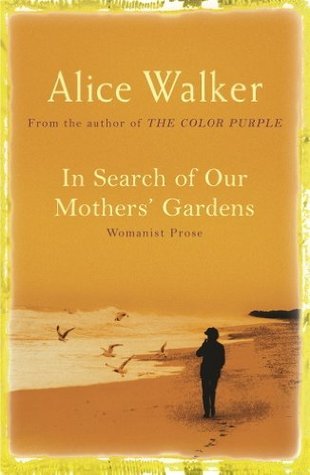
In Search of Our Mother's Gardens
Book Description
Amidst the vibrant tapestry of culture and struggle, the voices of women echo powerfully, revealing the forgotten gardens of creativity they’ve cultivated. Each essay in this collection unveils the profound impact of heritage, resilience, and artistic expression, challenging the confines of race and gender. Stories of inspiration and defiance intertwine, celebrating the relentless spirit of those who have shaped history. With each page, a montage of emotions unravels—joy, sorrow, triumph, and loss. Will the legacies of our mothers' gardens flourish in the hearts of the next generation, or will they wither away in silence?
Quick Book Summary
"In Search of Our Mother's Gardens" by Alice Walker is a powerful collection of essays that explores the intersections of gender, race, creativity, and identity within the Black female experience. Walker mines the hidden histories and creative legacies of African American women, whose artistic talents were often suppressed or unrecognized due to societal constraints. Through personal reflection, literary critique, and cultural commentary, she honors the resilience that allowed Black women to nurture their talents and pass wisdom to subsequent generations. Walker advocates for the recognition of these neglected voices and underscores the need for self-expression and artistic freedom. Her essays challenge prevailing narratives, urging readers to re-examine history, acknowledge the cost of oppression, and celebrate the spirit and creativity cultivated in the gardens of their mothers and foremothers.
Summary of Key Ideas
Table of Contents
The Inheritance of Creativity and Legacy
Walker begins by reflecting on the profound inheritance passed down by Black women across generations. She uses the metaphor of gardens to illustrate the silent creativity, strength, and tenacity that women displayed in the face of relentless adversity. Personal stories and historical anecdotes underscore how their creativity flourished in kitchens, churches, and everyday life—even when it couldn’t find formal recognition. This legacy forms the foundation upon which future generations might reclaim and realize their own creative expressions.
The Intersectionality of Race and Gender
She carefully examines how race and gender intersect to create unique challenges for Black women artists and thinkers. Walker unpacks how systemic racism and patriarchy often forced women into roles of servitude, denying them formal education or outlets for artistic expression. Yet, despite these barriers, Black women found ways to express themselves and support each other, relying on community and ancestral memory to persevere. These intersections, Walker argues, must be understood for true liberation and recognition.
Rediscovering Silenced Voices
A major theme is the importance of rediscovering, reclaiming, and celebrating the voices that have been silenced or ignored by dominant narratives. Walker writes essays on literary foremothers such as Zora Neale Hurston and Jean Toomer, highlighting their often unacknowledged contributions. She uses her platform to give voice to those who were excluded from history books, emphasizing the value of memory and historical correction as a crucial step in healing and empowerment.
Art as Survival and Resistance
The collection also explores how art and creativity serve as a means of survival and a tool for resistance against oppression. Walker discusses quilting, storytelling, and spiritual expression as vital forms of artistic resistance that allowed Black women both to cope with pain and retain agency over their stories. She reveals how such practices merge everyday life with art, and how these acts, however modest, can powerfully affirm humanity, build solidarity, and cultivate hope.
Empowerment Through Storytelling
Walker concludes with a call to action, urging readers to draw inspiration from these gardens of resilience to foster a more inclusive and just world. She highlights the transformative power that comes from telling one’s own story and from listening to the stories of others. By honoring the creativity cultivated by Black women, she contends, new generations can break cycles of silence and oppression. Ultimately, Walker argues for the recognition of artistic voices that have long been marginalized, believing their legacies will flourish if nurtured by remembrance and action.
Download This Summary
Get a free PDF of this summary instantly — no email required.





